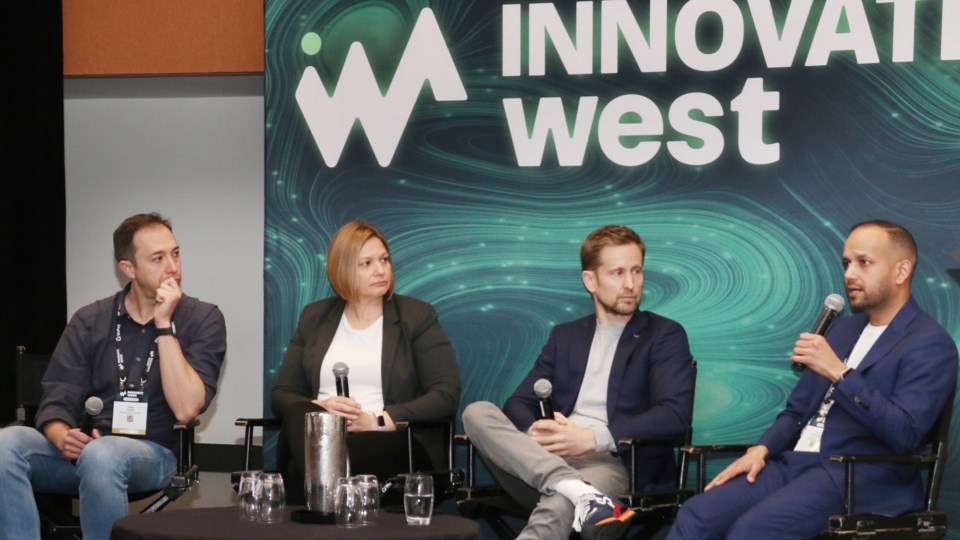Tech entrepreneurs descending upon Vancouver this week got a crash course in the rapidly evolving world of artificial intelligence (AI).
Experts from tech companies and institutions took to a panel at the INNOVATEwest conference to share best practices for startups and scale-ups when adopting AI. The conference attracted thousands of attendees to the downtown convention centre April 16-17.
Panellists urged startups to rethink investing in training their own models and instead start with existing tools to manage costs while exploring the benefits of the technology.
“Don't start by training your own model, that's the wrong way to go. You've got to pay for freemium or premium usage, and you're going to be able to do a lot of prototyping with millions of tokens and context, to prove something out and build your first product,” said Ryan Monsurate, co-founder and chief technology officer of Vancouver AI consulting firm Farpoint Technologies Inc.
Ryan Nadel, principal product manager at Microsoft Corp. (Nasdaq:MSFT), said it’s important for companies not to start with an optimization mindset when building their large language model (LLM) or other types of models.
“If you look at the arc of technology history, the way you build great things is to build the thing, and then tune it, tweak it and optimize it and drive those costs down and find those margins,” said Monsurate.
“I really urge folks don’t optimize too soon, and focus on quality and value and then focus on your margins and COGS [cost of goods].”
As many companies are using ChatGPT and other AI tools to help with their day-to-day operations, Monsurate said they should provide context about the company and project to the tools, like how they would onboard and brief a new employee, to maximize the results.
“I tend to use the audio input quite often – the one on ChatGPT Plus is really good, and you can just speak to it for five minutes and say, ‘Here's all the other information about this problem that I can give you. Now, please try and solve this problem,’ and you're gonna get a way better result,” he said.
Monsurate added that companies need to check the user license agreement to make sure that the machine is not taking the company information to make its model better. Usually, the enterprise versions cannot legally use the company information and the personal versions give a certain time to delete the chat history.
And Monsurate said ChatGPT is not the best use-case for all tasks. In many cases, companies might want to merge ChatGPT with other types of models such as vision-based models and audio-based models, and sometimes it's the fusion of all of these models into one larger model that can accomplish some of the more complex goals.
When working with AI, companies also need to make sure processes are in place to correct the models when needed so they provide accurate information but also are “the best version of ourselves,” according to Bethany Edmunds, assistant dean of computing programs at Northeastern University’s Vancouver campus.
“A lot of elements are trained on the Internet, which is not necessarily what we want to replicate,” she said.
“So whose responsibility is it when there's a mistake? Who's going to be looking for bias? Who's going to look at those implications? It's really important to build that into your entire organization. If it is a software engineer's job, they need to have time to do that.”
As for AI talent, Monsurate said there are not enough experienced workers to meet the demand at the moment, so his company has been hiring interns fresh out of university and training them on the job.
“I think it's very valuable for all startups to consider … that's a finger-lift that people might be willing to do and that's two birds [with] one stone because it's going to be really expensive in time and money to find those experts out there.”




